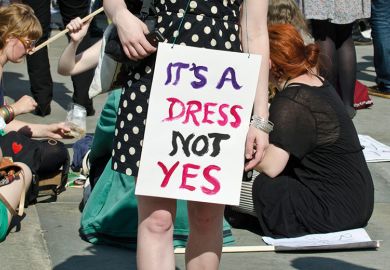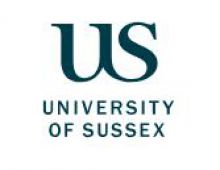Universities must have clear policies on staff-student relationships that acknowledge a “power imbalance” that leaves individuals “extremely vulnerable” to abuse, a women’s rights advocate has urged.
The call by Hareem Ghani, women’s officer at the National Union of Students, follows the publication last week of an independent inquiry into the University of Sussex’s decision not to suspend a media studies lecturer after he was convicted of assaulting his student girlfriend.
The inquiry, commissioned by the university’s new vice-chancellor Adam Tickell, criticises Sussex for not acting sooner to suspend Lee Salter, who was found guilty in June 2016 of beating Allison Smith.
The 24-year-old Ms Smith told Brighton magistrates how Dr Salter had punched her in the face, knocked her out and stamped on her, and had poured salt into her ears and eyes.
He eventually quit the university in August nine days after he was suspended, but disciplinary procedures should have begun much earlier, says the independent inquiry, which was undertaken by Nicole Westmarland, director of Durham University’s Durham Centre for Research into Violence and Abuse.
Concluding that Sussex failed in its “duty of pastoral care” to Ms Smith, who met a “wall of silence” when asking the university what action it was taking against Dr Salter, Professor Westmarland said that the case should “act as a warning to other universities to get their houses in order not just in relation to staff as well as students, but also in relation to partner violence generally”.
As part of 10 specific recommendations, Professor Westmarland said Sussex should “develop a clear policy on staff-student…relationships”, in which “all relationships should be disclosed and recorded, regardless of whether a potential conflict of interest is present”.
Dr Salter, who has launched an appeal against his conviction, claimed his line manager knew about his relationship with Ms Smith. However, this is disputed by the line manager, who said he was not informed about the relationship, about the serious nature of the assault or the fact that it involved a student, the inquiry states.
The apparent failure to declare this relationship, followed by the assault allegation, would have been cause to suspend Dr Salter on health and safety grounds, the report says.
Staff relationships involving an individual “who is in a relative position of power”, such as “lecturer-student or professor-research assistant” should also “undergo additional and ongoing checks”, says the report.
After the publication of the report, Professor Tickell apologised for the university’s “failings” in the case.
Speaking to Times Higher Education, Ms Ghani claimed the lack of “clear-cut policies on student-staff relationships and student-staff misconduct leaves many students unprotected”.
“Many universities do not have a specific protocol on what professional boundaries look like,” she said.
"I don’t think this is an issue about ‘policing’ relationships per se, [but] it would be intellectually dishonest to imply that a relationship between student and staff is one of equals,” she said.
Instead, there is a “power imbalance” in staff-student relationships and universities should “confront this fact head on”.
“This is especially true in the case of Allison Smith. The relationship may have been between two consenting adults, but it was a relationship based on an unequal distribution of power that eventually left her extremely vulnerable,” added Ms Ghani.
Register to continue
Why register?
- Registration is free and only takes a moment
- Once registered, you can read 3 articles a month
- Sign up for our newsletter
Subscribe
Or subscribe for unlimited access to:
- Unlimited access to news, views, insights & reviews
- Digital editions
- Digital access to THE’s university and college rankings analysis
Already registered or a current subscriber?










